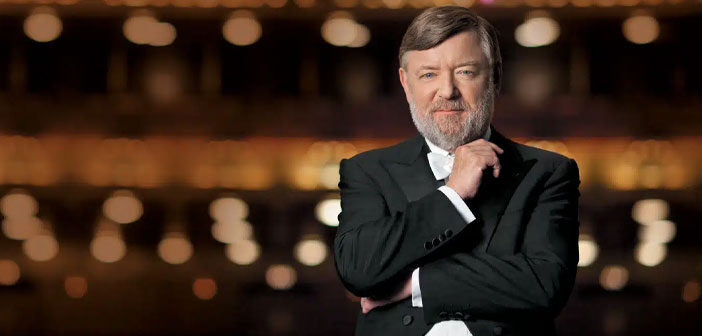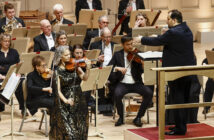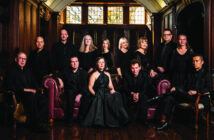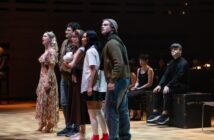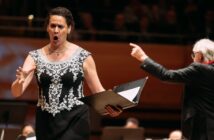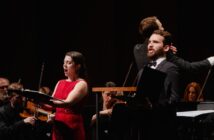The TSO continues to attract conductors of world class reputation. Most recently, conductor Laureate Sir Andrew Davis received a regal welcome befitting his longstanding kinship with the Toronto Symphony Orchestra and its audience. Maestro Davis bounded onstage, and the glorious power of music consumed and comforted all those present at Roy Thomson Hall instantly.
The program was artfully curated around the theme of remembrance. The brochure itself is something of a keepsake, with informative program notes, original artwork by Jaden Stan and Dane Thibault, and the Latin text and English translation of Faure’s Requiem in D Minor. The theme of the evening was explored through three contexts, the loss of a parent, and relationship of mother and child, reflections of a composer whose life was cut short unexpectedly, and a lament for a father. Audiences were invited to contemplate loss on a macro scale.
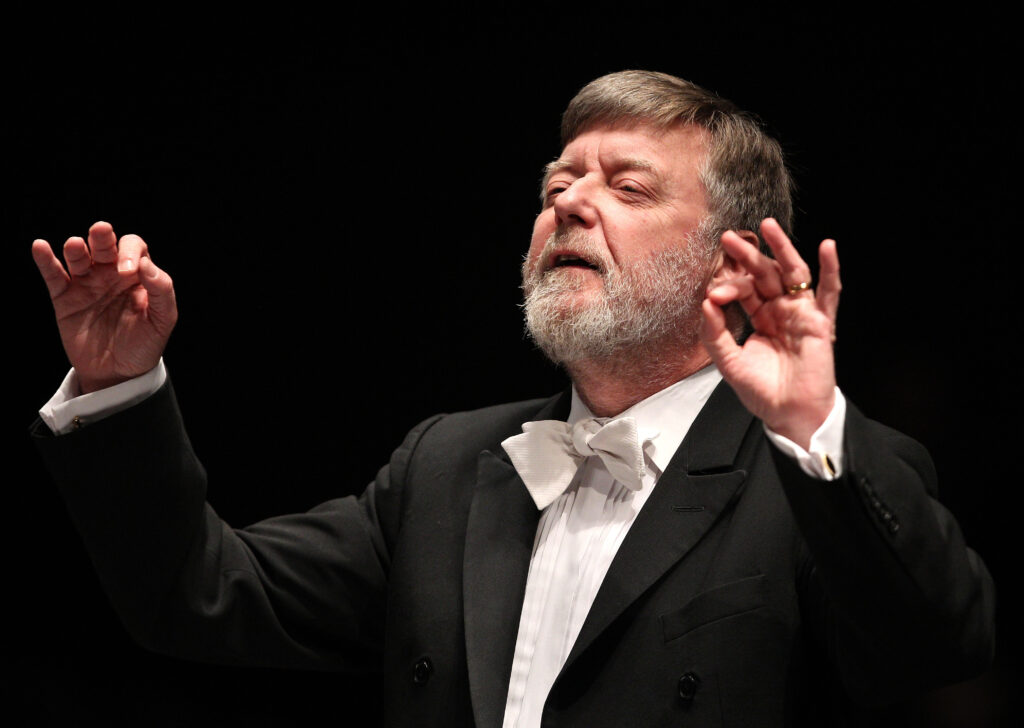
Sir Andrew Davis (Photo by Lucas Dawson Photography)
The program featured many premieres. The concert opened with the Canadian Premiere of Mother and Child, composed by Ed Frazier Davis [son of Sir Andrew Davis – Ed.]. The piece is eclectic, drawing on many genres, from liturgical music to video game and film music. The music depicts a mother opening her child’s eyes to the world. Tender and sonorous, intense playing in the lower strings supported soaring, bird-like sounds. As noted in the program brochure, the work is inspired by the relationship between the composer and his own late mother, soprano and teacher Gianna Rolandi, who passed away on June 20, 2021. Depicting the complicated nature of grief, the inimitable, stirring voice of concertmaster Jonathan Crow’s violin solos and violin section shaped the entire evening from start to finish. The piece ends on unison high notes in the violins. At the invitation of Maestro Davis, the composer came up to the stage and was acknowledged by the audience with grateful applause.
Next on the program was Mozart’s Symphony No.40 in G Minor, K. 550. The violins were elegant. The house was full. Everyone was clearly having fun. The work was played simply and with a lightness. The sounds of resignation, though, were juxtaposed with this elegance. The TSO creatively captured the momentum that characterizes Mozart’s returning motifs. Each derivative passage was played with freshness and novelty.
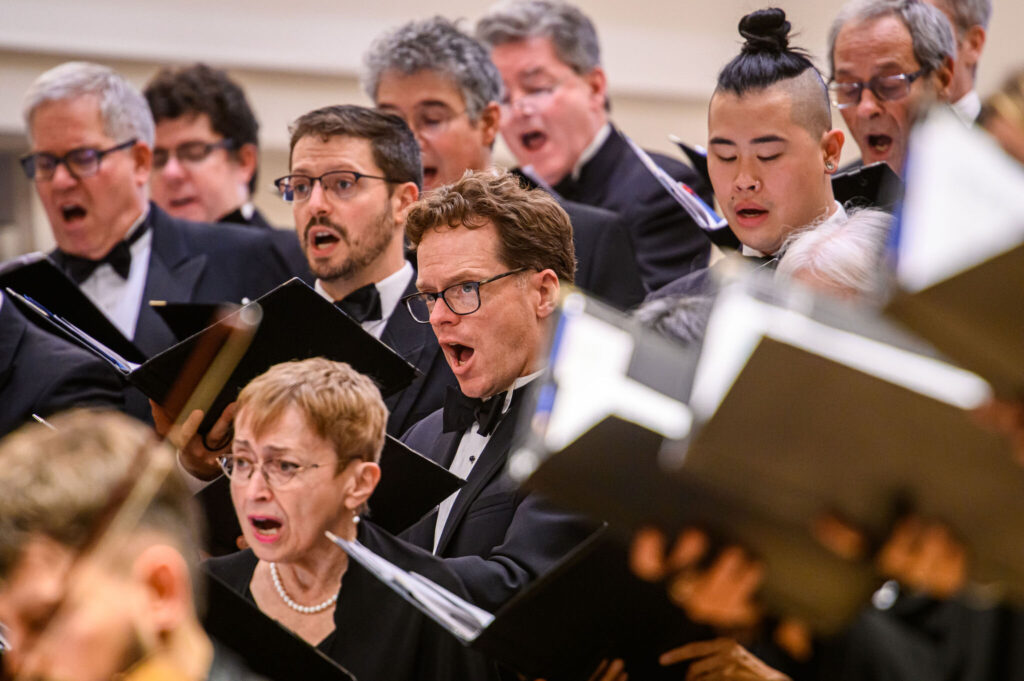
Amadeus Choir: Threnody (Photo by Dahlia Katz)
The capstone of the evening, Gabriel Fauré’s famous Requiem in D Minor brought the Amadeus Choir, soprano Nardus Williams, and baritone Ed Frazier Davis, to centre stage. Whose eyes would remain dry at the sound of these performers? Williams is the winner of the Rising Star award at the 2022 International Opera Awards, and Frazier is both an accomplished baritone and composer. These performances marked each of their TSO debuts. The Amadeus Choir, (led by Kathleen Allan, Artistic Director and Nila Rajagopal, Associate Conductor), contributed energetically. Their performance was at once gripping, solemn, tender, gentle and optimistic.
Faure’s orchestration highlights violas, cellos and basses, augmented by solo violin. The mastery of the TSO celli and lower strings shone, and was particularly well suited to performing this work. Departing from their usual seating plan, the TSO cello section sat to the right of the stage, followed by the basses. The violi sat in front of the conductor. Placement of the cellos and basses so near the audience gave each of the section members tremendous exposure, and was well suited to the repertoire at hand. Associate Principals Emmanuelle Bergeron and Winona Zelenka led their sections brilliantly. Their sections members played their hearts out, and their individual glorious playing roared through the hall. The depth of their gorgeous sounds, individually and collectively, was profoundly moving.

Nardus Williams (Photo by Bertie Watson)
War and remembrance. Why is it that sad music is a balm for grieving souls? I asked a group of music-loving attendees at an international psychiatry conference last spring about this phenomenon. Many theories were offered, such as that music represents a means through which we might seek out the promise of overcoming the loneliness that grief brings. Music is the universal language that picks up when words fail. Mission accomplished.
Note: This article was edited to include an Editor’s note and to correct a spelling mistake.
Toronto Symphony Orchestra
www.tso.ca

